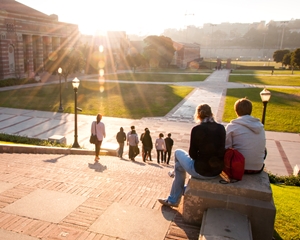 Sexual assault and harassment have been a central issue for the country’s universities following a damning report from the Australian Human Rights Commission (AHRC) last year.
Sexual assault and harassment have been a central issue for the country’s universities following a damning report from the Australian Human Rights Commission (AHRC) last year.
Thirty-nine universities participated in the national survey, which revealed 51 per cent of all students had been harassed at least once in 2016. Furthermore, 6.9 per cent of respondents said they suffered a sexual assault in 2015 or 2016.
Following the release of the report, equality campaign group Fair Agenda has published findings from its own survey of university residencies around Australia. But have educators made a concerted effort to stamp out assaults and harassment on campuses?
Progress is occurring but slowly
Fair Agenda said more universities than ever before are offering training to stop sexual violence from happening. Crucially, a growing number are calling on experts to guide training and policy development.
However, only 148 of the 211 university residences that Fair Agenda contacted responded to the survey, despite the current focus on sexual assault and harassment across institutions worldwide.
According to Fair Agenda, the research showed a mixed bag of results, with some residencies making great strides towards preventing sexual assault and harassment, while others lag behind or declined an invitation to participate.
Some of the more positive results included:
- 128 campuses claimed they were training all students about consent and sexual violence prevention;
- 116 residences will receive training on being an ethical bystander, which involves safely intervening when someone is at risk;
- 115 campuses intended to teach students how to react when a friend discloses sexual assaults.
What improvements can be made?
The Fair Agenda survey highlighted various shortcomings among respondents’ efforts.
For example, only 57 campuses said they utilised a dedicated sexual assault service to train all students. Just two-thirds said their training used evidence-based research to formulate prevention strategies.
There was also a lack of sexual assault services involved with training staff, with only 84 campuses using specialists to improve understanding among teaching personnel.
“The evidence is clear that universities need to do more to prevent such abuse from occurring and to build a culture that responds appropriately to these incidents by supporting victims and sanctioning perpetrators,” Sex Discrimination Commissioner Kate Jenkins said last year.
In Australia, survivors of institutional sexual assault can claim compensation for the physical and psychological injuries they have suffered. The current political climate means a growing number of people are speaking out about their experiences of historic injustices.
If you’d like to discuss sexual assault, abuse or harassment with an experienced, compassionate lawyer, please contact a member of our team at Gerard Malouf & Partners Compensation, Medical Negligence & Will Dispute Lawyers today.

